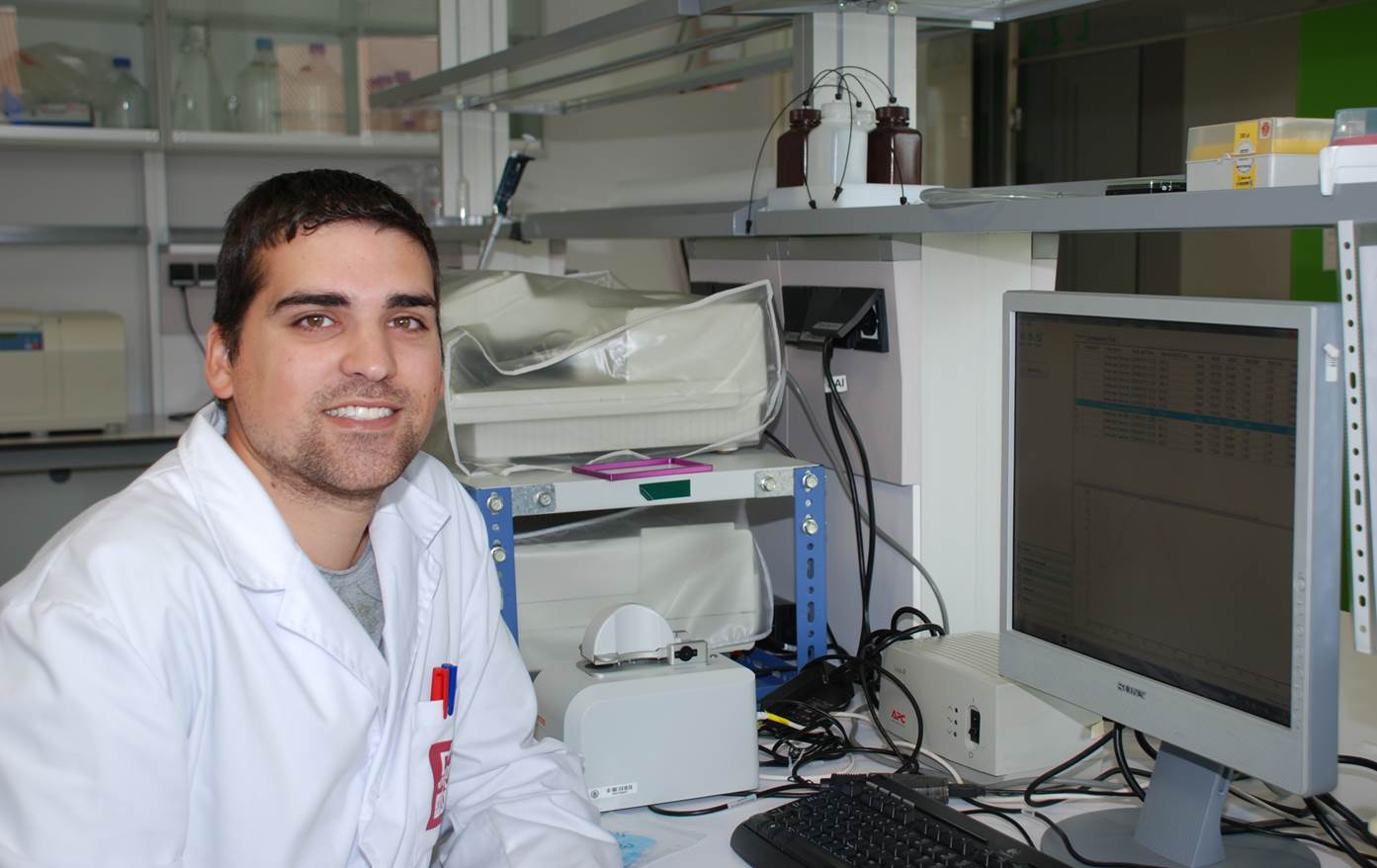
Juan Gonzalez Valdivieso
| AREA | RESEARCH GROUP | INSTITUTE |
|---|---|---|
| Molecular Biology, Biochemistry and Physiology |
I graduated in Biology (2012) at the University of León (Spain). I obtained the Master in Biomedical Research (2013) at the University of Valladolid (Spain) and subsequently worked at the Centre of Excellence Institute of Biomedicine and Molecular Genetics (UVa-CSIC) until 2015, where I studied different cell signalling cascades in cells of the immune system. In 2016, I started my PhD on the development of advanced biomaterials for the controlled release of drugs against different diseases, under the supervision of Prof. Javier Arias and Dr. Alessandra Girotti. In 2018, I completed a 4-month pre-doctoral fellowship at the Institute for Liver and Digestive Health, University College London (UK). I obtained my PhD in 2020, entitled "Advanced nanodevices based on Elastin-like Recombinamers as smart drug delivery systems for biomedical applications) and subsequently worked at the Laboratorio Oficial de Diagnóstico COVID de Castilla y León (UVa-CSIC-UBU-ITACYL-SACyL-ISCIII). In 2021 I moved to New York (USA) where I worked in Prof. Moonsoo Jin's group at Weill Cornell Medicine as a postdoctoral researcher in the development of cell therapies based on CAR T cells in combination with nanoparticles against multiple cancer models. In 2022 I joined Prof. Manuel Salmerón-Sánchez's group at the University of Glasgow (UK) as a Margarita Salas postdoctoral researcher. My research project focuses on the design and synthesis of advanced biomaterials with different mechanical properties for tissue engineering (muscle, bone, cartilage).
My research focuses on the design and synthesis of advanced biomaterials for tissue regeneration and drug delivery. Recent scientific research has promoted disciplines such as biochemistry, biotechnology and immunology, among others, which together are also known as biomedicine. In recent years, the scientific community has been trying to develop new biomedical devices in order to improve not only the diagnosis and replacement of structural and biological functionality, but also the treatment of multiple diseases. Biomaterials are those materials that are synthesised from a biological source or whose ultimate goal is to interact with the biological system in order to aid in diagnosis, therapy or restoration of physiological functionality. Thus, the science of biomaterials studies their different applications in human health. There are different types of biomaterials: metals and alloys, composites, ceramics, synthetic polymers and natural biopolymers. The growing interest in biomedicine and biomaterials science is mainly due to two factors: i) the large number of population directly affected and ii) the increase in life expectancy. These challenges require a breakthrough in materials engineering to adapt the right biomaterial to emerging medical technologies.
My vision is to understand the characteristics that make biomaterials precise tools for application as therapeutic strategies for tissue regeneration and controlled drug release. In this way, we can design biomaterials à la carte and advance the development of therapeutic tools for personalised medicine.

